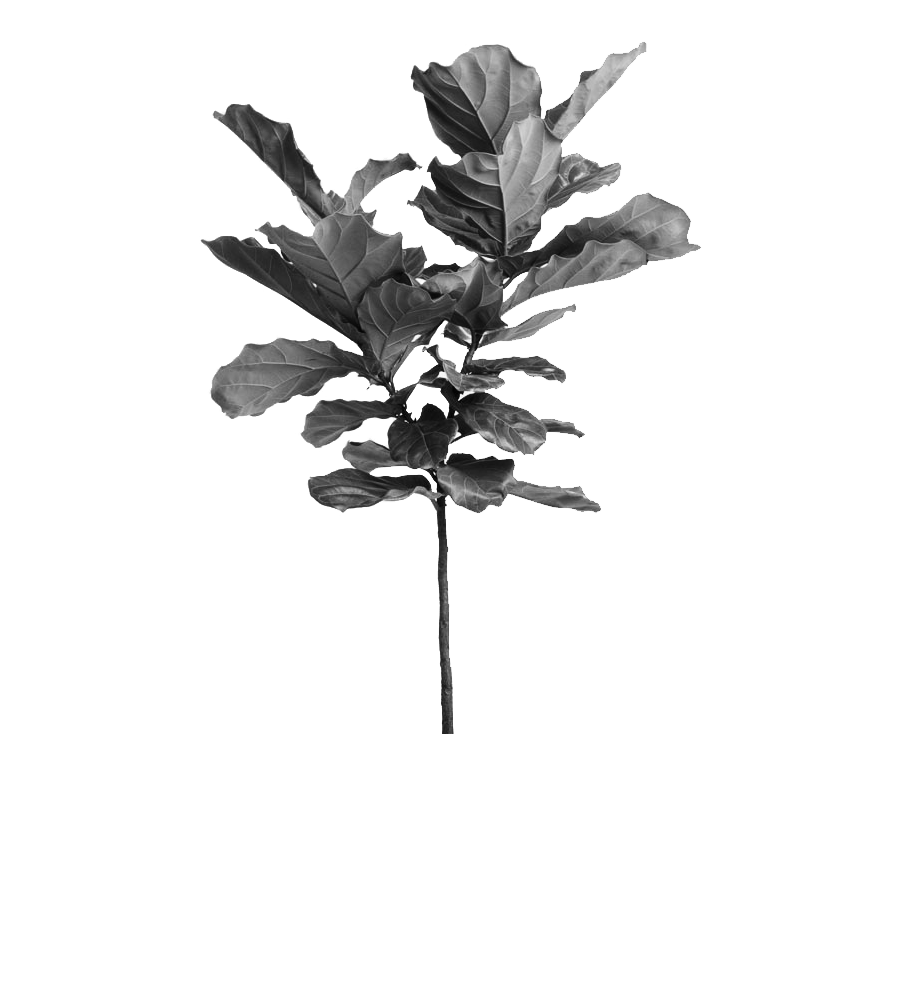Ficus Lyrata.
Origin: West Africa
The fiddle-leaf fig (Ficus lyrata) is a popular indoor specimen
plant featuring very large, heavily veined, violin-shaped leaves
that grow upright. These plants are native to tropical parts of
Africa, where they thrive in very warm and wet conditions. This
makes them somewhat challenging for the home grower, who is
likely to have trouble duplicating these steamy conditions.
However, they are relatively tough plants that can withstand
a less-than-perfect environment for a fairly long time.
Fiddle-leaf figs are perfect as focal points of a room if you
can situate them in a floor-standing container where the plant
is allowed to grow to at least 6 feet. (Most indoor specimens r
each around 10 feet tall.) They’re fairly fast growers and can
be potted at any point in the year if you're like most gardener
s acquiring a nursery plant to keep indoors.
Light:
Fiddle-leaf figs require bright, filtered light to grow and
look their best. Direct sunlight can burn the leaves, especially
exposure to hot afternoon sun.1 And plants that are kept in
very low light conditions will fail to grow rapidly.
Water:
Fiddle-leaf figs like a moderate amount of moisture in the
soil. If the plant doesn’t get enough water, its leaves will
wilt and lose their bright green color. And if it gets too much
water, the plant might drop its leaves and suffer from root rot,
which ultimately can kill it. During the growing season (spring
to autumn), water your fiddle-leaf fig when the top inch of soil
feels dry. And over the winter months, water slightly less.
Furthermore, these plants are sensitive to high salt levels in
the soil. So it's ideal to flush the soil until water comes out
the bottom of the pot at least monthly. This helps to prevent
salt build-up.
Humidity:
Fiddle-leaf figs don’t like extreme temperature fluctuations.
A room that’s between 60 and 85 degrees Fahrenheit is typically
fine, though you must position the plant away from drafty
areas, as well as air-conditioning and heating vents. These can
cause sudden temperature shifts. Aim for a humidity level
between 30% and 65%. If you need to supplement humidity,
mist your plant with clean water in a spray bottle daily. Or
you can place it on a tray of pebbles filled with water, as
long as the bottom of the pot isn’t touching the water. Plus,
fiddle-leaf figs can benefit from being in a room with a
humidifier.
 ficus lyrata
ficus lyrata